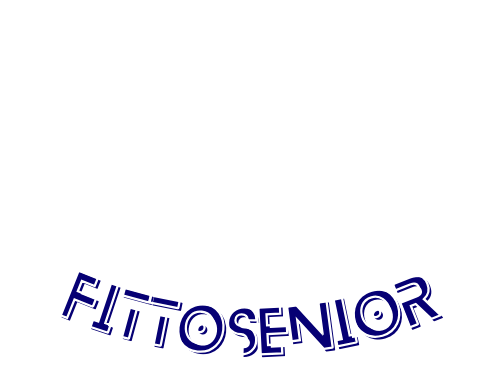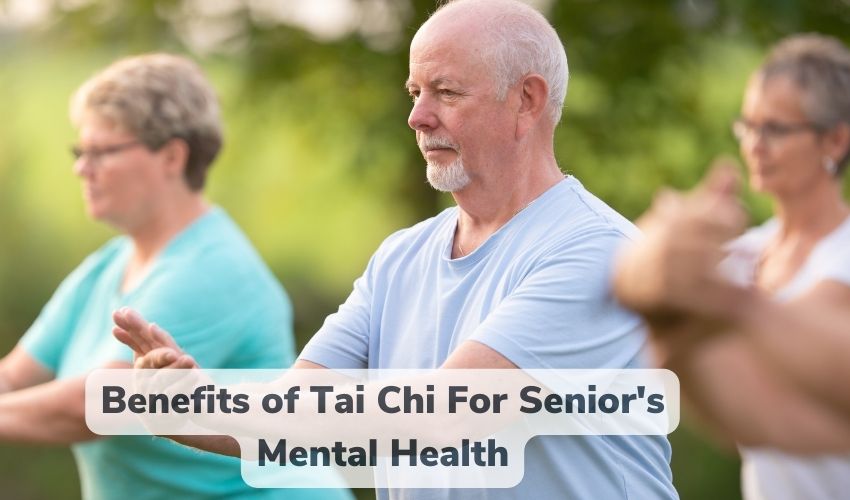Mental health is of utmost importance for seniors as it directly affects their overall well-being. One holistic approach that has gained recognition for its positive impact is Tai Chi. This ancient Chinese martial art form not only promotes physical health but also nurtures mental well-being. In this article, we will explore the profound benefits of Tai Chi for seniors’ mental health and delve into its origins, principles, and techniques.
Understanding Mental Health in Seniors
- Common mental health challenges among seniors. As individuals age, they often face unique mental health challenges such as anxiety, depression, loneliness, and cognitive decline. Understanding these challenges is crucial for providing appropriate support and intervention.
- The impact of mental health on overall well-being. Mental health significantly influences seniors’ overall well-being, including their physical health, social interactions, and quality of life. Neglecting mental health can have adverse effects on their holistic wellness.
- Stigma surrounding mental health in older adults. Older adults often face social stigma and stereotypes related to mental health issues, which may discourage them from seeking help or engaging in activities that promote mental well-being. Addressing and breaking down this stigma is essential for fostering a supportive environment.
What is Tai Chi?
- Origins and history of Tai Chi. Tai Chi originated in ancient China as a martial art but evolved into a graceful practice focused on cultivating the body and mind. Rooted in Taoist philosophy, it incorporates flowing movements, deep breathing, and mindfulness.
- Key principles and philosophy behind Tai Chi. Tai Chi is guided by key principles such as relaxation, balance, alignment, and energy flow. Its philosophy emphasizes harmony with nature, the cultivation of inner strength, and the integration of mind, body, and spirit.
- Benefits of practicing Tai Chi for seniors’ mental health. The practice of Tai Chi offers a myriad of mental health benefits for seniors, including stress reduction, improved cognitive function, enhanced mood, better sleep, and increased social interaction. These benefits stem from the holistic nature of the practice and its focus on mindfulness and self-awareness.
The Science Behind Tai Chi and Mental Health
- Research studies on the effects of Tai Chi on mental well-being. Numerous scientific studies have demonstrated the positive impact of Tai Chi on mental health outcomes in seniors. These studies highlight improvements in stress levels, anxiety, depression, cognitive function, sleep quality, and overall psychological well-being.
- Mechanisms by which Tai Chi improves mental health.
Tai Chi’s meditative and slow movements activate the parasympathetic nervous system, leading to a relaxation response and reduced stress. The practice also enhances neuroplasticity, increases brain-derived neurotrophic factor (BDNF), and promotes the release of endorphins, which contribute to improved mental health. - Comparison of Tai Chi with other forms of exercise for mental health. Tai Chi offers distinct advantages over other forms of exercise when it comes to mental health benefits for seniors. Its low-impact nature, emphasis on mindfulness, and integration of breath work make it particularly suitable for seniors seeking holistic mental well-being.
How Tai Chi Can Improve Mental Health for Seniors
- Stress reduction and relaxation. Tai Chi provides a sanctuary for seniors to release stress and tension. The gentle, rhythmic movements combined with deep breathing promote relaxation, allowing the body and mind to unwind.
- Enhancing cognitive function and memory. Regular practice of Tai Chi has been shown to enhance cognitive function, attention, and memory in seniors. The integration of movement, mental focus, and body awareness stimulates the brain, supporting cognitive health.
- Boosting mood and reducing symptoms of depression. Tai Chi has a positive impact on mood by increasing the production of endorphins and regulating neurotransmitters. It can help reduce symptoms of depression, providing seniors with a natural and uplifting approach to mental well-being.
- Improving sleep quality and reducing insomnia. The combination of physical exercise, relaxation techniques, and mental focus in Tai Chi promotes better sleep quality and helps alleviate insomnia. Seniors who practice Tai Chi often experience improved sleep patterns and wake up feeling more refreshed.
- Promoting social interaction and reducing feelings of loneliness. Tai Chi classes provide an opportunity for seniors to connect with others and foster a sense of belonging. The supportive group environment and shared experience promote social interaction, reducing feelings of loneliness and isolation.
Getting Started with Tai Chi
- Finding a reputable Tai Chi instructor or class. To start practicing Tai Chi, it is essential to find a reputable instructor or class that specializes in teaching seniors. Seeking recommendations, checking credentials, and observing classes can help ensure a safe and effective learning experience.
- Exploring different styles of Tai Chi for seniors. There are various styles of Tai Chi, such as Yang, Chen, Wu, and Sun. Seniors can explore different styles to find the one that resonates with their preferences and physical abilities.
- Recommendations for suitable clothing and equipment. When practicing Tai Chi, seniors should wear loose, comfortable clothing that allows for unrestricted movement. Soft-soled shoes or practicing barefoot are preferred to maintain balance and connection with the ground.
- Precautions and safety tips for seniors starting Tai Chi. Seniors should consult their healthcare provider before starting Tai Chi, especially if they have underlying health conditions. Additionally, practicing within one’s physical limitations, using proper posture, and being mindful of any discomfort or pain is crucial to prevent injuries.
Tai Chi Techniques and Exercises for Mental Health
- Warm-up exercises and stretching routines. Before engaging in Tai Chi, warming up the body through gentle exercises and stretching helps prepare the muscles and joints for the practice. It promotes circulation, flexibility, and reduces the risk of injury.
- Basic Tai Chi movements for seniors. Tai Chi consists of a series of flowing movements that are performed slowly and mindfully. Seniors can start with basic movements such as “Grasp the Sparrow’s Tail,” “Cloud Hands,” and “Waving Hands Like Clouds” to improve balance, coordination, and body awareness.
- Breathing techniques for relaxation and mindfulness. Breathing plays a crucial role in Tai Chi practice. Techniques like deep abdominal breathing and reverse breathing help seniors cultivate relaxation, focus, and mindfulness, enhancing the mental benefits of the practice.
- Tai Chi meditation and visualization exercises. Integrating meditation and visualization exercises into Tai Chi practice further enhances its mental health benefits. Seniors can explore techniques such as body scanning, guided imagery, and mindful meditation to deepen their mind-body connection.
Incorporating Tai Chi into Daily Life
- Setting realistic goals and expectations. Seniors should set realistic goals and expectations when incorporating Tai Chi into their daily life. Progress is gradual, and the focus should be on the process rather than perfection.
- Establishing a regular Tai Chi practice routine. Consistency is key when reaping the mental health benefits of Tai Chi. Seniors should aim to establish a regular practice routine that fits their schedule, starting with shorter sessions and gradually increasing duration.
- Integrating Tai Chi with other self-care practices. To maximize the impact on mental well-being, seniors can combine Tai Chi with other self-care practices such as meditation, journaling, and healthy lifestyle habits like balanced nutrition and sufficient sleep.
- Tips for staying motivated and overcoming obstacles. Maintaining motivation can sometimes be challenging. Seniors can overcome obstacles by finding an accountability partner, joining a supportive Tai Chi community, and embracing the transformative journey that Tai Chi offers.
Tai Chi for Specific Mental Health Conditions
- Anxiety disorders and Tai Chi interventions. Tai Chi has shown promising results in reducing anxiety symptoms and promoting relaxation. Seniors with anxiety disorders can benefit from incorporating Tai Chi as a complementary therapeutic approach.
- Tai Chi for managing stress and promoting resilience. Stress is prevalent among seniors, and Tai Chi provides a valuable tool for managing stress and cultivating resilience. Its calming nature and emphasis on self-care contribute to an increased sense of well-being.
- Tai Chi as an adjunct therapy for depression and bipolar disorder. As an adjunct therapy, Tai Chi can support seniors with depression and bipolar disorder. Its combination of physical movement, breathwork, and mindfulness can help regulate mood, improve self-awareness, and provide a sense of stability.
- Tai Chi for cognitive decline and dementia prevention. Emerging research suggests that Tai Chi may have a positive impact on cognitive decline and may help reduce the risk of developing dementia. The cognitive engagement, physical exercise, and stress reduction aspects of Tai Chi contribute to brain health in seniors.
Personal Stories and Testimonials
- Real-life experiences of seniors who have benefited from Tai Chi
Sharing real-life stories of seniors who have experienced the mental health benefits of Tai Chi can inspire and motivate others. These narratives highlight the transformative power of Tai Chi and its potential for personal growth. - Testimonials from Tai Chi instructors specializing in mental health
Tai Chi instructors specializing in mental health can provide valuable insights into the impact of Tai Chi on seniors’ mental well-being. Their testimonials can emphasize the effectiveness of Tai Chi as a therapeutic practice.
Conclusion
In conclusion, Tai Chi is a powerful practice that holds great potential for improving mental health in seniors. With its origins deeply rooted in ancient wisdom, Tai Chi offers a holistic approach that integrates physical movement, mindfulness, and relaxation.
By reducing stress, enhancing cognitive function, boosting mood, improving sleep quality, and fostering social interaction, Tai Chi empowers seniors to embark on a journey of mental well-being and self-discovery. Encouraging seniors to embrace Tai Chi as a complementary therapy is a step toward nurturing their mental health and overall quality of life.
Remember, if you have specific concerns or medical conditions, it’s always advisable to consult with a healthcare professional before starting any new exercise program.
FAQs
Yes, Tai Chi has been found to have several mental health benefits for seniors. It can reduce stress, anxiety, and depression, improve mood, enhance cognitive function, and promote overall mental well-being.
Tai Chi benefits mental health through its mind-body connection. The slow, deliberate movements promote relaxation, increase self-awareness, and help seniors focus their attention, leading to reduced mental stress and improved emotional balance.
Yes, Tai Chi is generally suitable for seniors with varying levels of mobility. It can be adapted to accommodate different physical abilities, making it an accessible form of exercise for individuals with limited mobility.
It is recommended that seniors practice Tai Chi regularly to experience mental health benefits. Starting with a few sessions per week and gradually increasing the frequency can be beneficial. Consistency is key to reaping the rewards of Tai Chi for mental well-being.
Yes, Tai Chi can be used as a complementary therapy alongside other treatments for mental health conditions. It can help manage symptoms, reduce medication reliance, and improve overall quality of life for seniors with mental health concerns.
Yes, practicing Tai Chi regularly can improve sleep patterns in seniors. The relaxation techniques and stress reduction associated with Tai Chi can contribute to better sleep quality and duration.
The time it takes to experience the mental health benefits of Tai Chi can vary among individuals. Some seniors may notice improvements in their mental well-being after a few weeks of consistent practice, while others may take longer. Patience and regular practice are essential.
Yes, Tai Chi has shown potential in improving memory and cognitive function in seniors. The combination of physical movement, mental focus, and relaxation techniques involved in Tai Chi can enhance cognitive abilities and support brain health.

